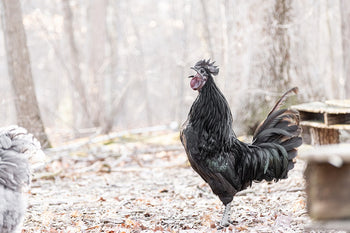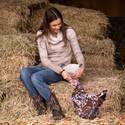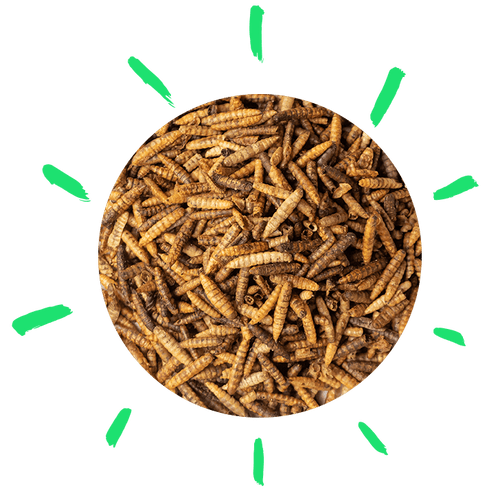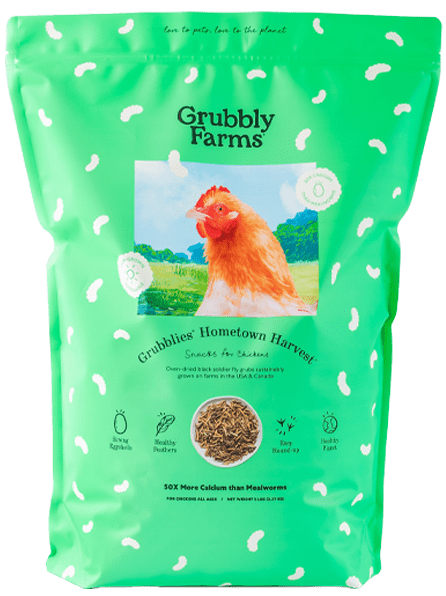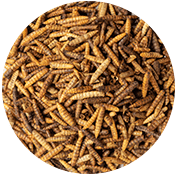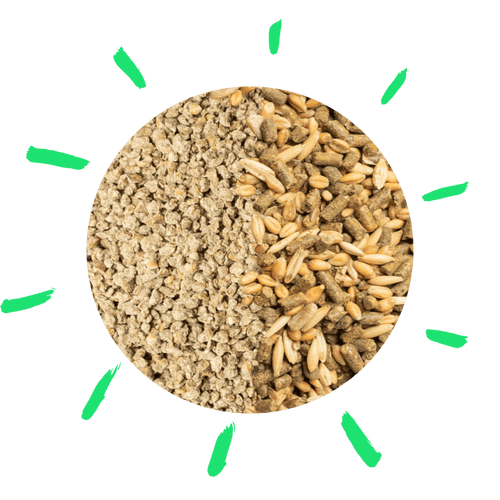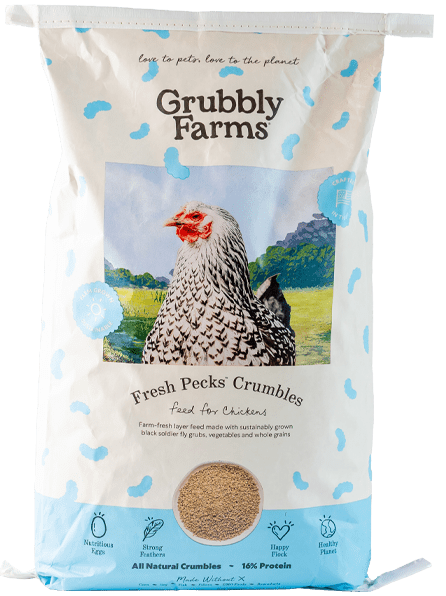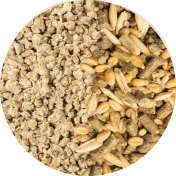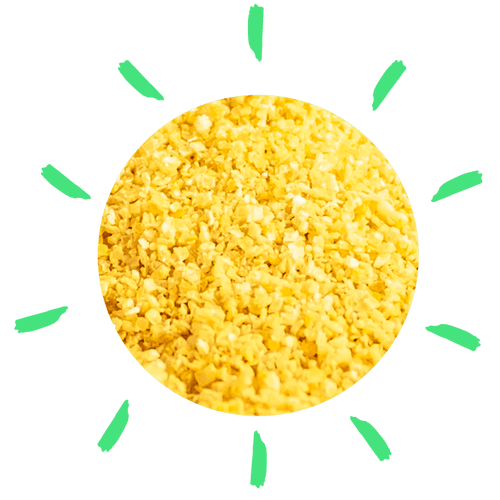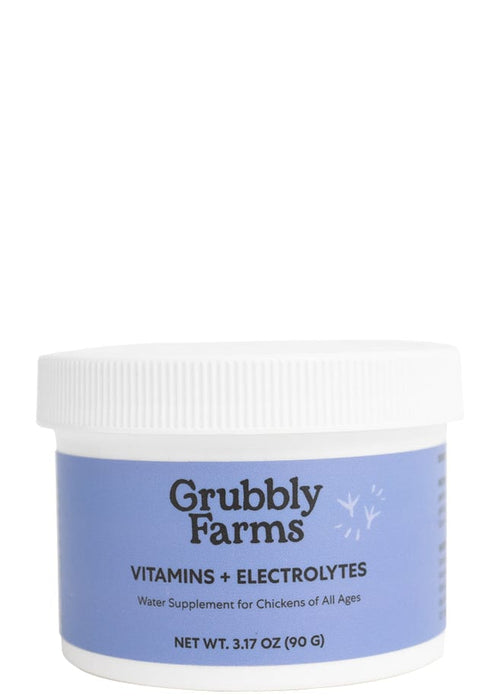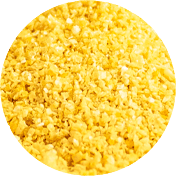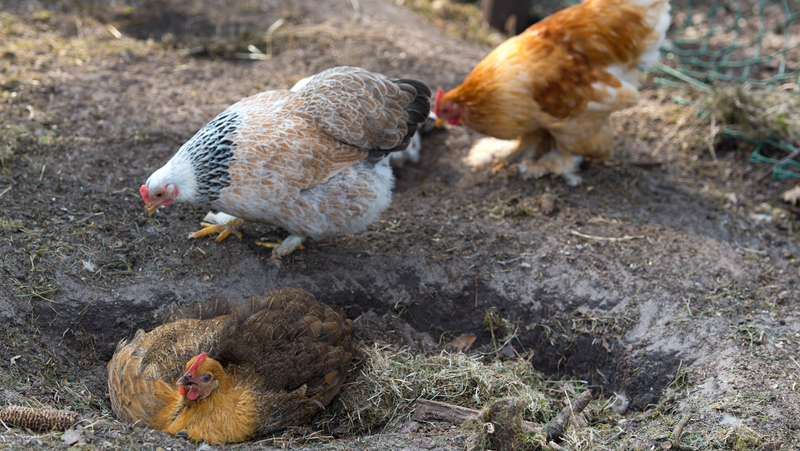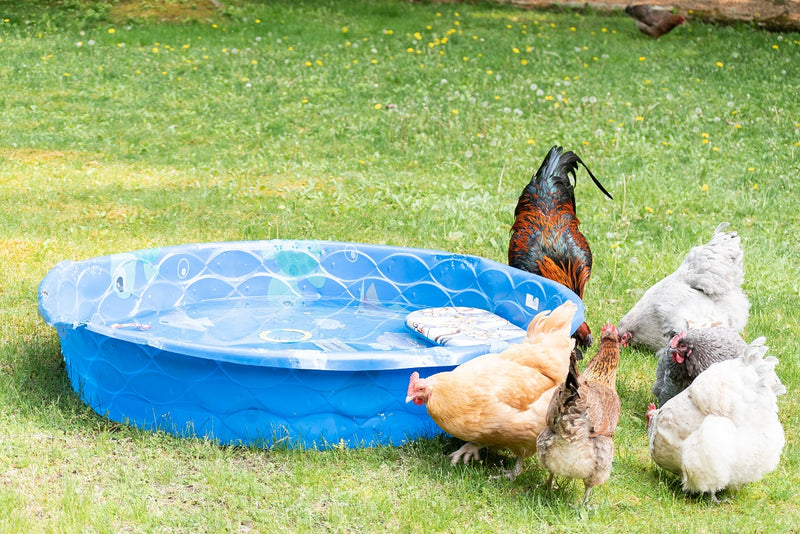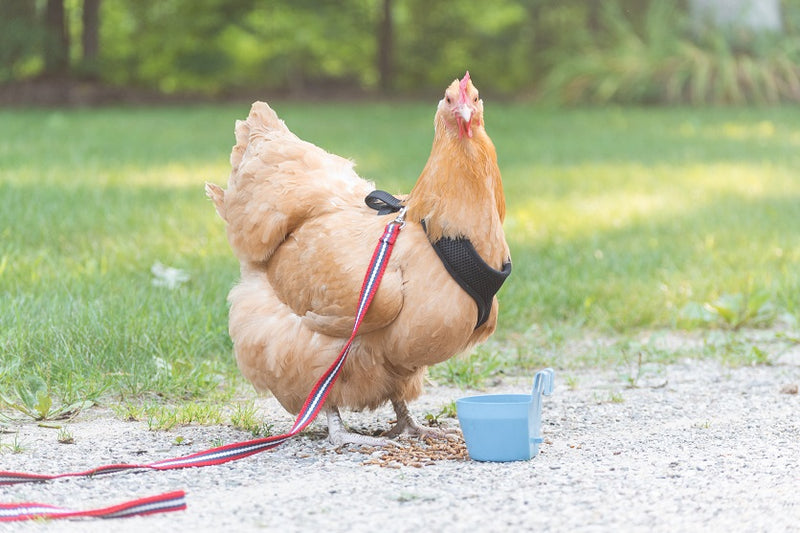Many different species of birds make unique vocalizations, but the rooster’s crow may be the most unique of all. No other bird makes a noise like the rooster’s crow, and each rooster has his own distinctive crow. But don’t assume that roosters crow just for fun. There are specific motivations behind a rooster’s crowing, and he can communicate different things with his crow. Whether you are an urban, suburban, or country chicken owner, learning why roosters crow can be interesting and helpful when raising your backyard flock!
What is the Job of the Rooster?

A rooster has three main roles in the flock. He is the flock protector, he helps the flock reproduce, and he maintains stable flock dynamics. As a flock protector, the rooster must always be on the lookout for danger. When he senses danger near, he will let out an alarm call. Protective roosters are always on alert and aware of sudden changes in their surroundings.
A rooster also takes his role of flock reproduction very seriously. It is instinctual for a rooster to want to mate with his hens. This is necessary to ensure the survival of the flock. Natural flock reproduction can be an asset in the backyard flock if you want to replenish your flock without buying chicks or more birds. Even if you have a rooster in your backyard flock, you can still eat the eggs since fertile eggs only begin to develop if they are incubated.
The third main role a rooster assumes in the flock is one of peacemaker, or flock leader. A rooster is outside of the hens’ pecking order. He can step in to break up fights or prevent bullying amongst the hens. The hens feel more secure and stable when a rooster is present. A more peaceful flock results in less stress, which can have positive effects on flock health and production.
So, what does the role of a rooster in the flock have to do with crowing? Roosters crow to communicate with their hens and to other roosters. The two main roles that a rooster will crow for are his role as protector and flock leader. Let’s take a closer look at each of those roles!
Rooster as a Flock Leader

A rooster who is a flock leader will maintain order and discipline within the flock. Roosters are outside of the hens’ pecking order. A single rooster will assume the role of flock protector, reproducer, and leader, which the hens instinctively recognize and respect. If there are several roosters in a flock, the roosters will have their own separate pecking order and the rooster at the top of the rooster pecking order is the leader of the whole flock.
He will create a stable pecking order in which fighting and bullying are kept to a minimum. A rooster will look out for lower class hens who might get bullied by more assertive hens who are higher up in the pecking order. If a fight breaks out amongst the hens, he will give the hens a chance to duke it out on their own, but if the fight gets too serious, he will step in and discipline the hen whom he sees as the troublemaker.
Having a rooster in the flock can make integrating new chickens into the flock go more smoothly. He will be more accepting of the new hens since they are an addition to his flock and he is outside of their pecking order. He will look out for the new hens as they work themselves into the current flock pecking order.
In some cases, a rooster will choose favorite hens. These hens will often show the results of his over-affections in the fact that they are missing head and back feathers from over-mating. This can occur if a rooster has too many hens in his flock. He will choose a few hens to focus on more than the rest of the flock. Choosing favorites can also be a personality trait of certain roosters, in which case, you can’t fix the issue without getting rid of the rooster.
Not only does a rooster keep peace in the flock, but he also helps with social cohesion within the flock. A rooster with a proper size flock will be able to manage all his hens, both when they are confined and when they are free-ranging. When free-ranging, a rooster will try to keep his hens grouped and in the same area so he can look out for all of them. He will also be the first to lead his hens into the coop to roost at night and may even venture out after they have all roosted to make sure all the hens made it into the coop.
Rooster as a Protector
Some roosters take their role of flock protector more seriously than others. A rooster who is a good flock protector will be on the lookout for danger at all times. He will physically defend his flock from predator attacks. Many roosters have been known to sacrifice their lives for their flock. Roosters will go after hawks, dogs, coyotes, and other predators that are threatening their hens.
Having a rooster in the flock creates a safe environment for the hens. They know that the rooster will be looking out for danger and they can rely on him to sound an alarm when danger is near. While it is sometimes thought that crowing is a warning sound for danger, it is actually more of a preventative signal. When a rooster crows, he announces his presence, which can indicate to predators that his flock is protected. When danger is truly imminent, he will issue an alarm call that is high pitched, short, and repetitive.
A rooster will protect his flock both when they are confined and when they are free-ranging. A protective rooster who is also assertive may see his flock caretaker as a threat to his flock, which can be dangerous and undesirable. Learn more about aggressive roosters in this article on How to Deal with an Aggressive Rooster.
Why Do Roosters Crow?

Crowing is an instinctual behavior for roosters. A rooster will crow for these reasons:
- Communicate with his own hens
- Communicate to other flocks
- Establish territory
- Establish dominance
- Warn away predators or other roosters
When communicating with his flock, a rooster may crow to signify that the flock is safe, to call hens who are wandering away from the flock, and to indicate flock location. He can communicate to other flocks his own flock’s position and whether they are moving closer to another flock or out of an area.
When establishing territory, a rooster will crow to announce his authority to other roosters. His crow can be a warning to other roosters to stay away from his flock. By crowing his authority, a rooster can avoid fights with other roosters if they know his position and that he is in charge. Roosters will also crow after they have sparred or fought. This is another example of how crowing can communicate dominance.
Why Do Roosters Crow in the Morning?
While we may never know for sure why roosters crow first thing in the morning, there are several theories on why roosters tend to crow at that time of day. All birds have a biological clock and are in tune with circadian rhythms.
Chickens have a pineal gland that senses light using photoreceptors similar to those in the eye (1). The pineal gland is located on the top of the brain. Both hens and roosters have a pineal gland. In hens, the pineal gland plays an important role in sensing light for egg production. In roosters, the pineal gland also senses light, but it triggers other behaviors, like crowing.
The pineal gland produces melatonin and regulates circadian rhythms. It dictates sleep, egg production, broodiness, and other body functions. The pineal gland reacts differently to seasonal light and different spectrums of light, which is one reason for a change in egg production in hens during different seasons.
Roosters can often anticipate dawn and crow to signal the start of the day based on their internal circadian rhythm clock (1). Their internal circadian rhythm clock is set at about 23.8 hours, so they sense the start of a new day just before dawn. Since their internal clock is based off of light, roosters will also crow in response to light. When supplemental light is used in the coop during the winter to keep hens laying, a rooster will crow as soon as the light turns on since he thinks it is morning. Other environmental factors can also influence when a rooster crows, such as if a brewing storm causes a change in natural light.
If there are several roosters in a flock, the head rooster will start crowing first. Subordinate roosters will then follow. When there are several head roosters who each have their own flock, they will often crow back and forth to each other in the morning to re-establish claims to their hens, territory, and dominance.
Do Roosters Crow at the Same Time Each Day?

Once you have a rooster in your backyard flock, you will quickly learn that he doesn’t stop crowing after the sun rises! Roosters will crow all day long. Other than crowing first thing in the morning, most roosters don’t have a crowing schedule throughout the day.
However, the most crowing often occurs in the morning and evening. This is when a rooster is most sexually potent and his hormones are running the strongest. A rooster may also crow after he has mated with a hen.
Here are some other factors that influence when a rooster will crow throughout the day:
- Light levels
- Daily routine
- Presence of other roosters
- Trigger noises
- Seasonal factors
One rooster will crow less compared to if there are several roosters in one flock. Additionally, young cockerels will often crow more frequently than older, mature roosters. A rooster will crow the most frequently and repetitively when there are other roosters around. He will communicate with other roosters in his flock, the rooster in the flock across the yard, or even the rooster two houses down the street.
Certain noises can trigger a rooster to crow as well. A vehicle pulling in, a tractor starting up, or a door opening or closing. A rooster will often associate these noises with a change in his environment and will crow about it.
Occasionally you may hear your rooster crowing in the middle of the night. This behavior may seem strange, but it is usually just the result of some trigger that caused the rooster to wake up. Car headlights shining into the coop or sudden nighttime noises can all startle a rooster awake and cause him to announce his presence.
Seasonal changes can affect how often a rooster crows throughout the day. As daylight hours wane in the fall and winter, a rooster will crow less frequently. On the flip side, when the daylight hours start to lengthen and spring breeding season rolls around, crowing will intensify. Extremely hot weather or extremely cold weather can also cause a rooster to crow less than normal as he is conserving his energy for staying cool in hot weather or staying warm in cold weather.
Common Myths About Roosters
Roosters only crow at dawn
Anyone who owns a rooster for more than 24 hours will quickly find out that roosters do not crow only at dawn. A rooster will crow at any time of the day, and even occasionally in the middle of the night. Lights and noises can trigger a rooster to crow. A rooster will also crow to assert dominance, establish his territory, or to communicate with his hens.
Roosters crow for no reason
Crowing is an instinctual behavior for roosters. It is a natural behavior that would have been needed by our flocks’ ancestors, the Red Jungle Fowl. However, even our modern-day roosters crow for a reason. Crowing is one way that they communicate with their hens and with other roosters. Crowing can be used to communicate warnings, dominance, and presence.
Crowing indicates an aggressive rooster
Just because a rooster crows does not mean he is aggressive. Even the sweetest, most docile rooster can let out a hearty crow! All roosters crow no matter what their personality is like. However, it is helpful to keep in mind that a rooster will crow to establish his dominance or territory. If he feels like you are threatening his status or his flock, he may crow to warn you, and then proceed to attack if you don’t heed the warning.

Conclusion
A rooster plays three essential roles in the flock. He serves as the flock protector, he aids with natural flock reproduction, and he acts as flock leader. Crowing plays an important part in all three of those roles. A rooster will crow to warn away predators or other roosters who threaten his flock. He will crow to communicate with his hens, and he will crow to establish his territory. With a rooster in your backyard flock, you will quickly learn to love his unique vocalizations no matter what time of day it is!
Source:
- Caughey, Melissa. How to Speak Chicken. Storey Publishing, 2017





